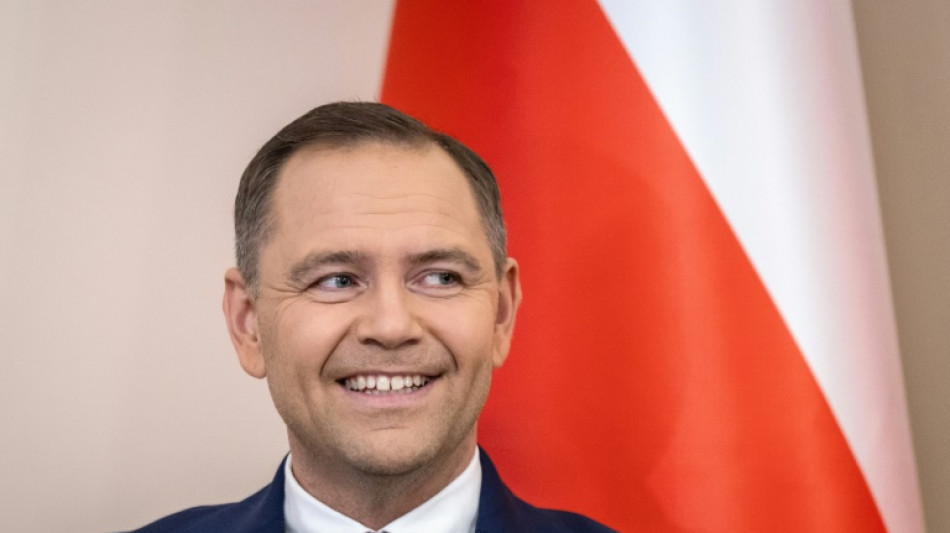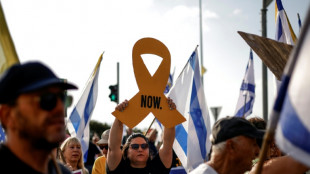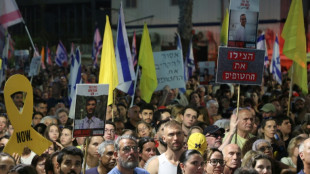
Polish supreme court ratifies nationalist's presidential vote win

Poland's Supreme Court on Tuesday said it had validated the result of last month's presidential election won by the nationalist opposition candidate, despite numerous appeals over the conduct of the vote.
In the country's highly polarised political landscape, concerns had also been voiced over the legitimacy of the court chamber which will issue the verdict.
Karol Nawrocki, backed by the Law and Justice (PiS) party, scored 51 percent of votes to win the June 1 runoff election, according to official results -- a major blow for the pro-EU government of Prime Minister Donald Tusk and LGBTQ rights campaigners.
Warsaw mayor Rafal Trzaskowski, the candidate put forward by the government, lost out by 369,000 votes in the country of 38 million people.
"All of the circumstances clearly demonstrate that Karol Tadeusz Nawrocki garnered more votes than Rafał Kazimierz Trzaskowski during the second round of the vote," judge Krzysztof Wiak announced after a hearing, also confirming the election result.
Prosecutors had alleged that the vote count was falsified in Nawrocki's favour at some polling stations, fuelling calls for a national recount.
PiS dismissed doubts about the vote as an attempt to "steal the election".
According to the Polish constitution, the Supreme Court had to validate the ballot before the winner could be sworn in at a joint session of parliament -- a ceremony planned for August 6.
However, European courts and legal experts have questioned the legitimacy of the Exceptional Supervision and Public Matters Chamber, the Supreme Court body that issued the ruling on Tuesday.
The European Court of Human Rights said in 2023 that the Chamber does not fulfil the definition of "an independent and impartial tribunal established by law".
Justice Minister Adam Bodnar, who is also the prosecutor general, had asked in vain for all of the chamber's judges to be excluded.
Tusk has criticised the chamber, but recognised on Monday that "it is the Supreme Court's responsibility to rule whether an election is valid or not".
"It is not possible... for the Supreme Court to be replaced in this matter... by the prosecutor general or the government," the prime minister said.
- 'Paralyse the Supreme Court' -
The Supreme Court had received around 56,000 election protests since the second round of voting.
Judges have already dismissed, without taking further action, more than 50,000 complaints, many of which were based on protest templates shared on social media.
Supreme Court chief justice Malgorzata Manowska criticised the sending of template-based protests as an "operation meant to... paralyse the Supreme Court".
Bodnar complained that prosecutors were not given access to all of the 56,000 protests and suggested that the chamber's examination of those could be nothing more than a "facade".
Still, the court ordered the results from 13 polling stations to be recounted earlier this month.
National prosecutors later said that in some of those polling stations votes were transferred from one candidate to another, mainly in Nawrocki's favour.
Government coalition lawmaker Roman Giertych authored one of the protest templates, claiming that votes had been reassigned to Nawrocki and alleging ballot rigging.
Giertych and several experts have demanded a national recount and called for the presidential inauguration to be postponed in order to clarify the alleged irregularities.
These experts assert that the previous nationalist government and outgoing president Andrzej Duda introduced reforms which have undermined the rule of law in Poland.
The reforms have long put Poland at odds with the European Commission, but the victory of a pro-EU coalition in October 2023 parliamentary elections mitigated the conflict.
Parliament speaker Szymon Holownia, like other members of the ruling coalition, has so far firmly rejected the idea of postponing the presidential oath ceremony.
Independently, Bodnar has ordered a group of prosecutors to examine "irregularities" in the vote counting.
"It is the prosecution's role... to inquire everywhere, where there is a suspicion of crime," Tusk said.
C.Thomas--PS

 London
London

 Manchester
Manchester
 Glasgow
Glasgow
 Dublin
Dublin
 Belfast
Belfast
 Washington
Washington
 Denver
Denver
 Atlanta
Atlanta
 Dallas
Dallas
 Houston Texas
Houston Texas
 New Orleans
New Orleans
 El Paso
El Paso
 Phoenix
Phoenix
 Los Angeles
Los Angeles


